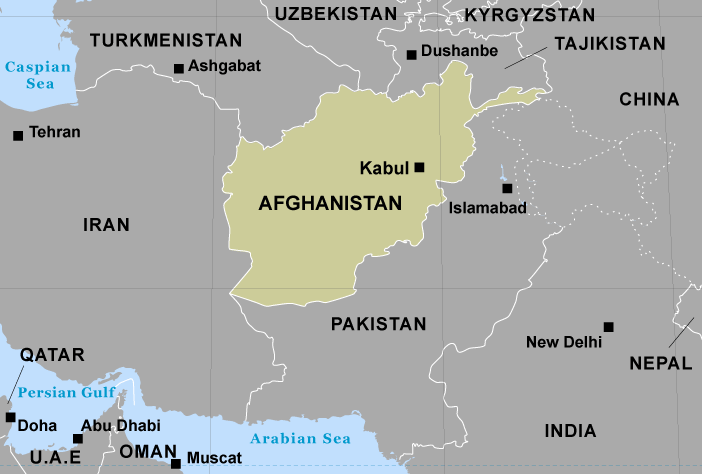Afghan
Photo credit: www.cnn.com
Why are individuals fleeing from Afghanistan?
Ongoing conflicts, economic instability, and violence within the country. In 1979, the Soviet Union (now Russia) invaded Afghanistan, causing thousands of citizens to leave their homes and become Internally Displaced Persons (IDPs). Now, most new arrivals from Afghanistan come through reunification programs (to join family) or on Special Immigration Visas (SIV) because they helped the U.S. military during war in Afghanistan. As a result of involvement with the U.S. agencies, individuals become targets and no longer can peacefully live in their homes.
Primary language(s) in Afghanistan (Statistics from “The World Factbook” on CIA website)
77% Dari (Afghan Persian)
48% Pashto (Official)
11% Uzbeki
Religions in Afghanistan (Statistics from globalreligiousfutures.org)
99.7% Muslim (Sunni majority and some Shi’a)
<1% Other Religions
Common Phrases (Dari)
Source: http://www.omniglot.com/language/phrases/dari.htm
Welcome: Salam
Hello: Salam; hello
How are you?: Ci hal dari?
Response: Xob, tasakor
Yes: Baleh
No: Ne
Thank you: Tasakor
Also – a video of greetings in Dari.
Guidelines For Interacting With Afghan Refugees
What are some cultural differences?
Muslim Afghan refugees do not eat pork and other meat must be halal to be eaten. “Halal” means that the meat has been prepared in a special way according to Islam, similar to Jewish Kosher meat.
It is common to eat meals while sitting on the floor.
Physical contact between genders is avoided.
Marriage is required for age eligible adults and divorce is not considered socially acceptable.
What are some resettlement considerations?
Families with 8+ members are common.
Female relatives usually care for a baby when the mother cannot, so formal daycare in the United States may seem strange and uncomfortable to new arrivals.
Caseworkers should suggest local stores that carry halal meat for Muslim refugees (ex. Al-Mustafa Market & Bakery on Sawmill Road).
Many Afghans know English before they arrive in the U.S. due to former work with the U.S.
Many of the Afghan refugees are educated and had successful careers back home and may have trouble accepting low-level jobs in the U.S.
Caseworkers may have to explain to a husband that allowing his wife to drive will be helpful for the family (ex. taking the kids to school, going shopping, etc).
For home visits:
Males, even children, typically answer the door and interact with strangers before any women.
Access to women may be limited to a certain degree or in different ways.
It is customary to take off your shoes when entering a home.
Cultural norms surrounding pets are different. In particular, dogs are considered dirty and are not kept as pets.
Physical contact between genders should be avoided (handshakes, hugs, etc.) unless initiated by the individual.
Female caseworkers talk to women only (at first).
*This collection of information is neither perfect nor comprehensive. Each culture is unique and cultural norms are diverse even among individuals from the same culture. Additionally, the refugees from the following places are diverse, as is easy to see in the guidelines in this report.

